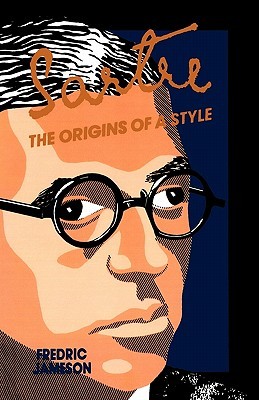
- We will send in 10–14 business days.
- Author: Fredric Jameson
- Publisher: Columbia University Press
- ISBN-10: 0231058918
- ISBN-13: 9780231058919
- Format: 14 x 21.6 x 1.6 cm, minkšti viršeliai
- Language: English
- SAVE -10% with code: EXTRA
Reviews
Description
First published in 1961, Sartre: The Origins of a Style is a striking attempt not merely to analyze Sartre's work formally, from an aesthetic perspective but above all to replace Sartre in literary history itself. As a study of Sartre's writings this work articulates the antagonism between the modernist tradition and Sartrean narrative or stylistic procedures. From the broader methodological perspective, Jameson turns around the relationship between narrative and narrative closure, the possibility of storytelling, and the kinds of experience-- social and existential--structurally available in a given social formation.
EXTRA 10 % discount with code: EXTRA
The promotion ends in 23d.21:20:13
The discount code is valid when purchasing from 10 €. Discounts do not stack.
- Author: Fredric Jameson
- Publisher: Columbia University Press
- ISBN-10: 0231058918
- ISBN-13: 9780231058919
- Format: 14 x 21.6 x 1.6 cm, minkšti viršeliai
- Language: English English
First published in 1961, Sartre: The Origins of a Style is a striking attempt not merely to analyze Sartre's work formally, from an aesthetic perspective but above all to replace Sartre in literary history itself. As a study of Sartre's writings this work articulates the antagonism between the modernist tradition and Sartrean narrative or stylistic procedures. From the broader methodological perspective, Jameson turns around the relationship between narrative and narrative closure, the possibility of storytelling, and the kinds of experience-- social and existential--structurally available in a given social formation.


Reviews